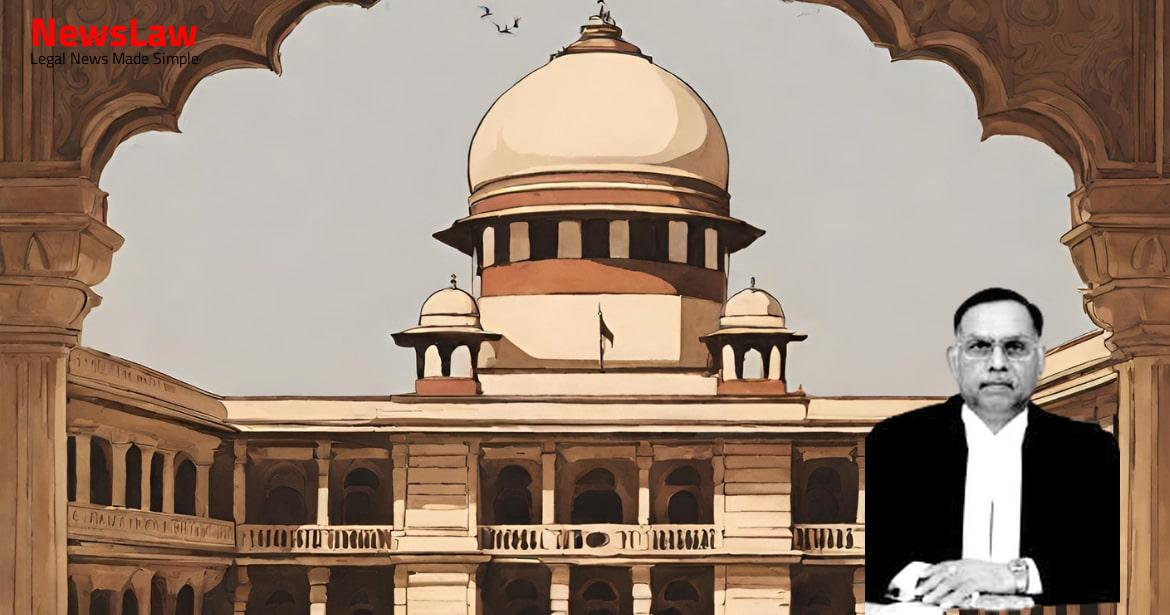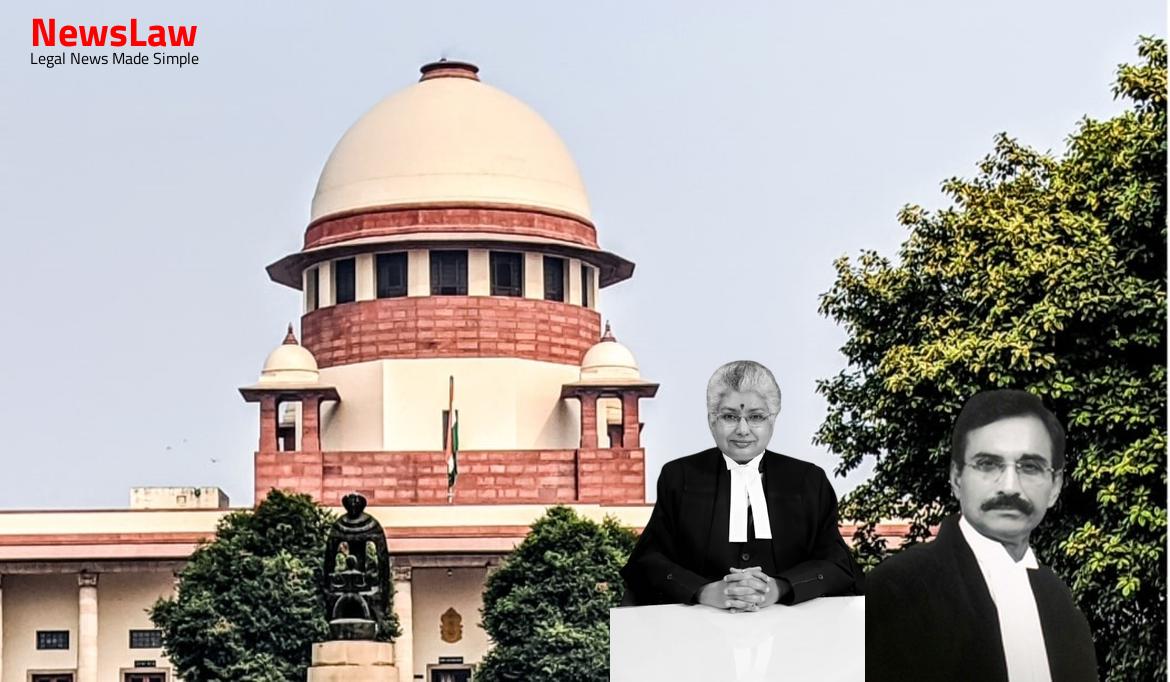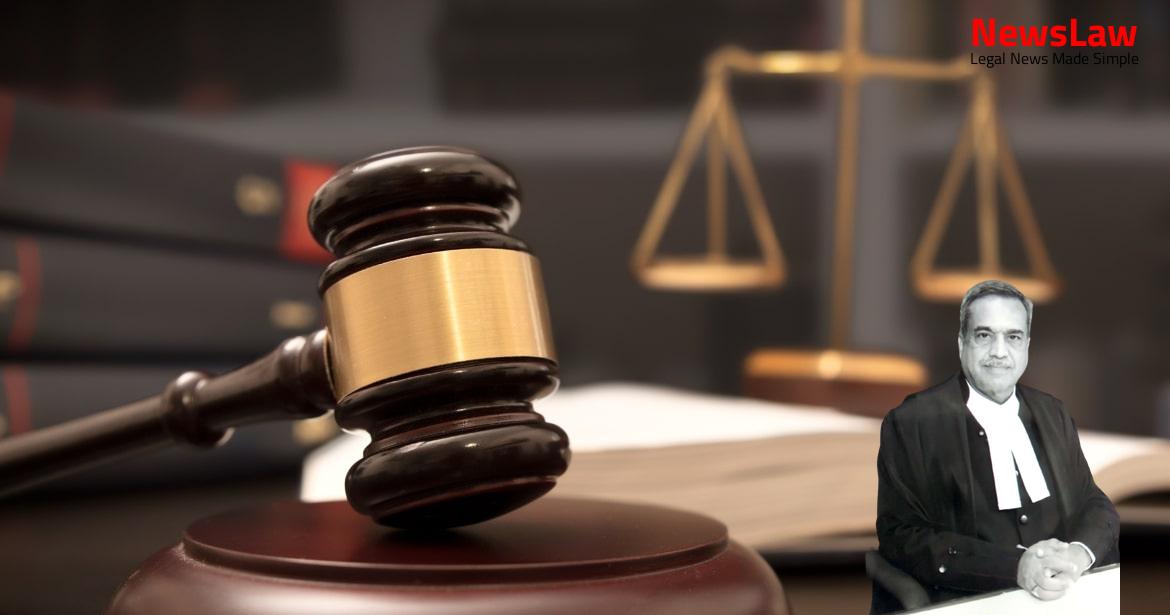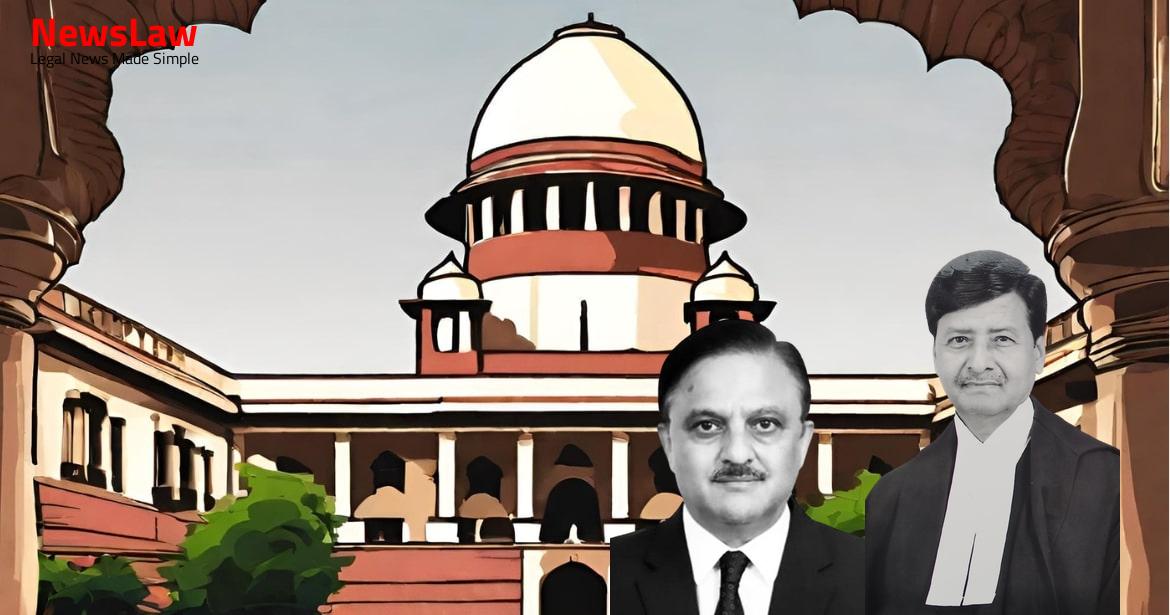The case delves into the legal intricacies of appellate review in a corruption matter, where the appellate court upholds the trial court’s acquittal. The analysis underscores the significance of the ‘possible view’ doctrine, emphasizing the need for appellate courts to respect the trial court’s findings unless clearly unreasonable. This legal summary sheds light on the critical role of legal analysis in ensuring justice prevails in the face of complex legal proceedings.
Facts
- The appellant-accused was charged under Sections 7, 13(2) read with 13(1)(d) of the Prevention of Corruption Act for demanding illegal gratification from a Supervisor in a Voluntary Service Organisation.
- 12 witnesses were examined on the prosecution side, along with 17 exhibits marked.
- The prosecution’s case was that the appellant demanded Rs.500 and a cell phone as illegal gratification for extending a sanitation work contract.
- The appellant, a public servant, allegedly accepted the illegal gratification on 10th October 2003.
- The appellant’s conviction was recorded and a sentence imposed by the Madurai Bench of the Madras High Court.
- Trial court acquitted the appellant based on oral and documentary evidence.
- Madurai Bench of Madras High Court overturned the acquittal and convicted the appellant.
- Appellant was convicted for offences under Section 7, 13(2), and 13(1)(d) of the Act.
- Appellant sentenced to one year of rigorous imprisonment and a penalty of Rs. 5000.
- Accused denied the charges, and charges were framed against him.
- State appealed the judgment of the Special Court in Criminal Appeal (MD) No.6 of 2015.
- Accused was tried before the Special Court for the alleged offences.
Also Read: Challenging Legal Analysis in 1989 Scheme Eligibility Case
Arguments
- The State’s counsel argued that the appellant challenged only the judgments/orders dated 22.09.2020 and 29.09.2020.
- It was contended that the trial court’s finding was a ‘possible view’ based on the evidence and even if an alternate view was possible, that was not sufficient to reverse the acquittal.
- Emphasis was placed on the trial court’s findings to support the argument.
- The appellant’s counsel raised the issue of the judgment and conviction under Section 7 of the Act being contrary to Section 362 of the Cr.PC.
- Senior counsel for the appellant, Sri Nagamuthu, highlighted that the trial court’s well-reasoned judgment was overturned by the High Court without valid reasons.
- A reference was made to the judgment in the case of Murugesan & Ors. v. State through Inspector of Police (2012) 10 SCC 383 to assert that the trial court’s view was a ‘possible view’ and no opposing reasons were provided before convicting the appellant.
- High Court convicted the appellant for the offence under Section 7 of the Act on 22.09.2020.
- Appellant’s counsel argued that the trial court’s view is a ‘possible view’ based on the evidence on record.
- Trial court disbelieved the testimony of PW-2, 3, and 5 citing valid reasons, but the High Court believed them without providing reasons.
- Acquittal strengthens the presumption of innocence for the accused.
- Appellate court should not disturb the trial court’s finding of acquittal if two reasonable conclusions are possible.
- Court referenced the case of Murugesan to highlight that the High Court can only interfere if the trial court’s conclusion is not a ‘possible view’.
- Initially, High Court convicted the appellant under Section 13(2) read with 13(1)(d) of the Act and imposed a sentence.
- High Court should not have interfered with the acquittal unless the trial court’s view was deemed unreasonable.
- Trial court’s findings are not erroneous based on the reasons recorded.
- Material contradictions in crucial witnesses’ testimonies were not considered by the High Court before convicting the appellant.
Also Read: Legal Analysis of Unilateral Cancellation of Registered Sale Deed
Analysis
- The prosecution failed to prove the case beyond reasonable doubt to convict the appellant.
- The High Court did not consider whether the trial court’s view was a ‘possible view’ or not.
- Material contradictions in key witness depositions led to acquittal being a ‘possible view’.
- Mere recovery of tainted money without proof of demand is insufficient for conviction.
- The judgement in violation of guidelines due to delayed pronouncement.
- A view taken by a lower court may be considered erroneous or wrong by a superior court upon disagreement, but that does not render the lower court’s view impossible.
- The case of C.M. Sharma v. State of A.P. and C.M. Girish Babu v. CBI illustrate the distinction between a ‘possible view’ and an ‘erroneous view’ or ‘wrong view’.
- In the present case, the complainant did not support the prosecution’s case regarding the accused’s demand.
- The judgment in Hakeem Khan & Ors. v. State of Madhya Pradesh emphasizes that even if the High Court disagrees with the trial court’s view, as long as it is a ‘possible view’, it should not be reversed.
- The term ‘possible view’ is defined in contrast to ‘erroneous view’ or ‘wrong view’, indicating that as long as the trial court’s view is reasonable, it should not be overturned.
- The principles regarding powers of the appellate court in dealing with an appeal against an order of acquittal include the court’s full power to review and reconsider evidence, without limitations or restrictions.
- In cases of acquittals, there is a double presumption in favor of the accused – firstly, the presumption of innocence, and secondly, the acquittal recorded by the trial court further strengthens this.
- The amendment filed by the appellant does not challenge the earlier judgment of conviction
- The appellant filed an interlocutory application seeking an amendment and it was allowed
- The failure to mention the earlier judgment in the amended memo is not a ground to reject the appeals
- The judgments relied upon by the State are not helpful in sustaining the conviction
- The appeals are allowed and the case of the appellant on merits is upheld
Also Read: Legal Analysis in Conviction Case
Decision
- The impugned judgments of conviction dated 28.08.2020 and 22.09.2020 and orders imposing sentence dated 15.09.2020 and 29.09.2020 are set aside.
- The appellant is to be released immediately from custody, unless required in connection with any other case.
Case Title: N. VIJAYAKUMAR Vs. STATE OF TAMIL NADU (2021 INSC 60)
Case Number: Crl.A. No.-000100-000101 / 2021



